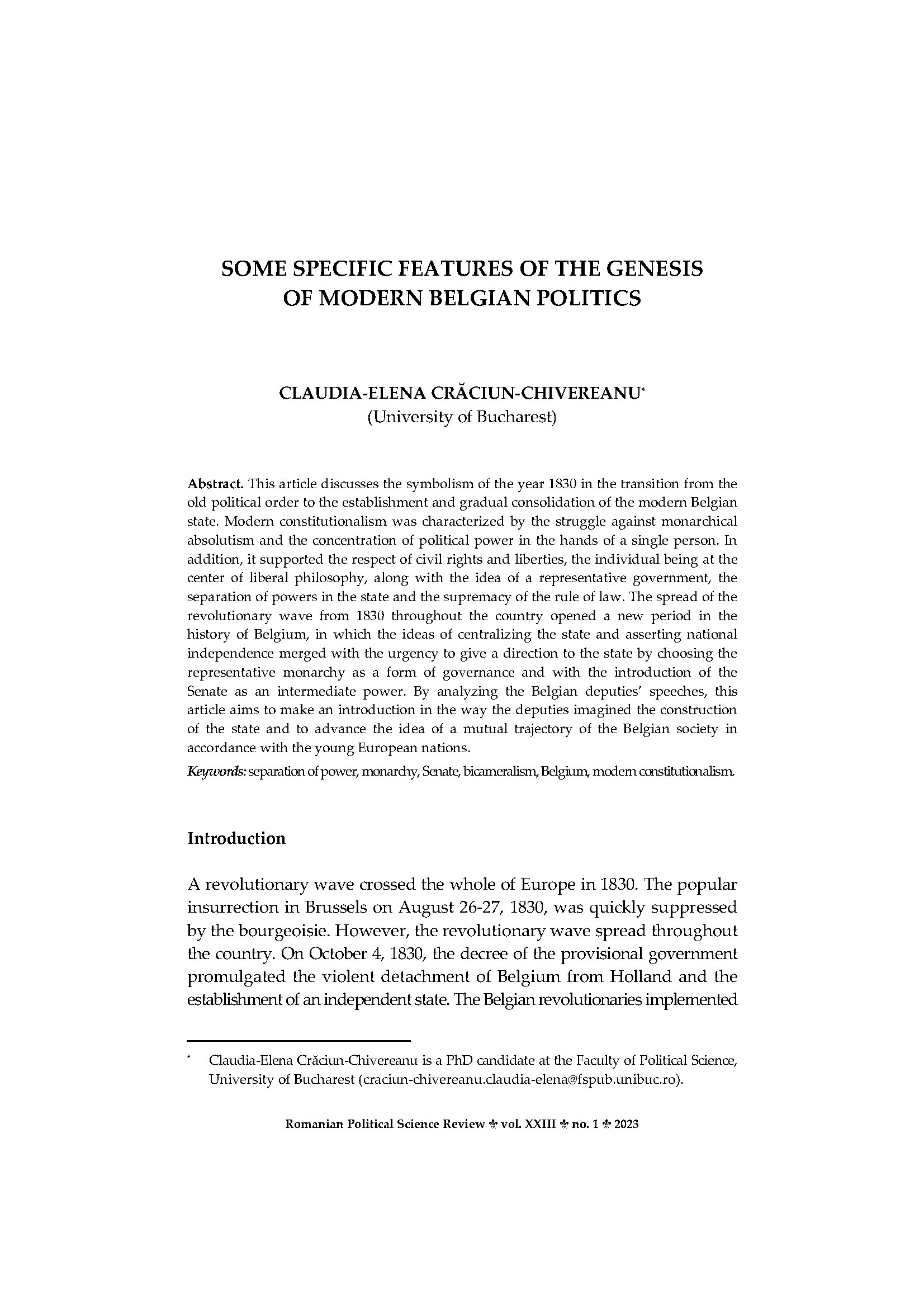SOME SPECIFIC FEATURES OF THE GENESIS OF MODERN BELGIAN POLITICS
DOI:
https://doi.org/10.62229/sprps23-1/5Keywords:
separation of power, monarchy, Senate, bicameralism, Belgium, modern constitutionalismAbstract
This article discusses the symbolism of the year 1830 in the transition from the old political order to the establishment and gradual consolidation of the modern Belgian state. Modern constitutionalism was characterized by the struggle against monarchical absolutism and the concentration of political power in the hands of a single person. In addition, it supported the respect of civil rights and liberties, the individual being at the center of liberal philosophy, along with the idea of a representative government, the separation of powers in the state and the supremacy of the rule of law. The spread of the revolutionary wave from 1830 throughout the country opened a new period in the history of Belgium, in which the ideas of centralizing the state and asserting national independence merged with the urgency to give a direction to the state by choosing the representative monarchy as a form of governance and with the introduction of the Senate as an intermediate power. By analyzing the Belgian deputies’ speeches, this article aims to make an introduction in the way the deputies imagined the construction of the state and to advance the idea of a mutual trajectory of the Belgian society in accordance with the young European nations.





